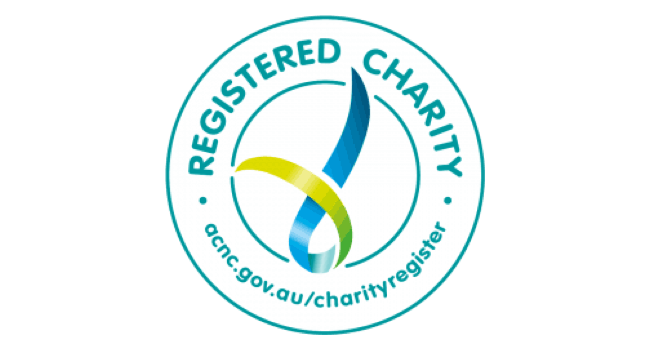The resources listed here provide research evidence for the principles of Relationship Based Education.
Online resources
Turning a school around: relationships are ‘the most crucial part’
This article in the Educator tells the story of Kingston State School in Queensland, a school with significant social challenges, that has seen impressive improvements in student outcomes under the leadership of principal Trent Cowley.
When asked about the philosophy that underpinned his leadership at Kingston State School, Cowley said relationships always came first. “This underpins all that I do as a leader in schools,” Cowley told The Educator. “For me, the most crucial part of leading in schools is to form productive, meaningful relationships with students, staff, parents and the wider community.”
Why a school’s success begins with culture
“With over 50 years of experience in education, John Hendry OAM has become a trailblazer in the field of education, helping leaders reimagine what’s possible… From introducing groundbreaking concepts like the Relationship Quotient and Relationship-based Education (RbE) to co-creating the Resilient Mindset alongside Andrew Fuller, Hendry has left an indelible mark on the way young people and educators approach learning.”
This article the Educator reviews John Hendry’s ongoing contribution to the discussion about relationships, school culture and the relationship between learning and wellbeing.
Behaviour and mental health in schools
This report from the Children and Young People’s Mental Health Coalition (UK) is based on a year-long inquiry into mental health and behaviour in schools. It supports many of the central ideas of RbE, including the idea that relationships should be at the centre of school culture. The report’s first recommendation is, “School leaders should commission staff training around relational and restorative approaches to help make the necessary changes and build more inclusive and nurturing environments for all pupils.” The full report is available, plus a brief summary, case studies and a visual representation of the key findings.
Relationships key to improved maths outcomes – experts
According to this article in the Educator, “Maths teachers who invest in getting to know their students, promote collaboration in the classroom, and actively seek feedback on their students’ learning experience are more effective in improving academic outcomes, a new study has found. The survey of 2,500 maths students and teachers by the Australian Association of Mathematics Teachers (AAMT) found that this approach from maths teachers results in a better level of student engagement in the subject, which has seen declining uptake in recent years.”
Minnesota Longitudinal Study
The Minnesota Longitudinal Study of Risk and Adaptation has been running since 1975. The study has followed the lives of hundreds of people from birth. The goal of the project has been to trace the course of individual development and to understand factors that guide it toward good outcomes or poor outcomes.
The study has found that early relationship experiences with parents, teachers and mentors are critically important to good outcomes in human development.
- Video interview with Alan Sroufe PhD (one of the Longitudinal Study leaders).
- Book: A Compelling Idea by Alan Sroufe, outlining the findings of the study and relating it to his own upbringing in a dysfunctional family.
“Kindness, not harsher discipline”
This article, written by secondary teacher Kate Hadley makes a case for the importance of relationships in education, and for a restorative approach when relationships are damaged.
This quote is particularly relevant:
“These days, I am fortunate to work in a co-educational school that values relationships above all else. We take a “restorative” approach to behaviour management that others have recently criticised as ineffective. Our core value is respect. This means that knee-jerk reactions and punitive discipline don’t have a place. It means that everyone gets a say when things go wrong.”
The article was published in the Age in April 2023.
Teacher–child relationships from an attachment perspective
Karine Verschueren & Helma M.Y. Koomen
This academic research paper, published in Attachment & Human Development, provides evidence of the critical importance of quality relationships in the educational setting.
Among the findings are:
- Especially for vulnerable students, the care-giving role of a teacher can be very important to their development, second only to the role of parents.
- Teachers’ sensitivity or responsiveness to children’s needs is critical to establishing a quality relationship.
- Quality relationships in the classroom can have far-reaching positive consequences on student learning and behaviour.
Negative Emotions Today Predict Procrastination Tomorrow
Timothy A Pychyl Ph.D
This article argues that people (including your students…and you!) procrastinate not because they’re lazy but because of emotional factors – and there are things you can do about it.
Happiness Curriculum
“Development of student and teacher measures of Happiness Curriculum factors”
Brookings Institution
This article documents the success of India’s ‘Happiness Curriculum’ initiative, which bears many similarities to the RbE approach. The premise of this curriculum is that helping students develop essential skills associated with happiness will improve students’ learning and life outcomes. In the classroom, teachers provide opportunities to connect knowledge to life outside of school, encourage students to apply skills in their lives, and use a variety of engaging teaching strategies, including active participation. The curriculum enables students to not only improve their scholastic skills but also their co-scholastic skills of mindfulness, critical thinking, reflection, and inner stability.
Youth and Anxiety
Joseph E. Davis Ph.D
How “#MeFirst” thinking and a culture of comparison with others is leading to increasing anxiety in young people.
What makes a good life?
“Lessons from the longest study on happiness”
Robert Waldinger
In this TED talk, Harvard psychiatrist Robert Waldinger discusses the results of a 75-year longitudinal study on what makes a happy life. (Hint: it’s not wealth or fame, it’s social connectedness and quality relationships.)
There’s a wealth of other information about this study, including:
- Summary of the study published by Harvard
- Interview with Robert Waldinger on Radio National’s Big Ideas
- See below for Robert Waldinger’s book on this topic.
- The next item on this list follows on directly from the Harvard study…
The One Thing That Can Make Us Happier and Healthier
Dan Mager
This article from Psychology Today follows up the findings of the Harvard study with some practical advice, including the idea of “relational fitness”.
The Science, Theory and Practice of Kindness: A Brief Overview
Michael Karlin and Brendan Akawa-De Silva
This article from The Blue Dot, published by UNESCO, is an excellent introduction to the concept and value of kindness – what it means and why it’s so valuable not only to the receiver, but to the giver as well.
How to help your kids succeed in school without piling on the pressure
Justin Coulson PhD
“Psychology researchers have discovered that there are three basic psychological needs that underpin our motivation and our wellbeing… the first one is relatedness. We need to have good relationships with the people around us, our friends, our teachers…”
Self Determination Theory
Centre for Self Determination Theory
Self Determination Theory (SDT) is a broad framework for the study of human motivation and personality. The SDT website has a range of articles that explore the central importance of relationships to human motivation and growth.
Under Topics on the SDT website, you may be particularly interested in the sections on Education, Parenting, Wellbeing and Relationships.
Books
Black Box Thinking
Matthew Syed
Examines how the #WeFirst approach (share and learn from mistakes, openness and lack of blame, continual improvement through marginal gains) actually leads to higher performance than the #MeFirst approach (closed thinking, quick to blame and bury mistakes rather than sharing them for the greater good), in the context of the corporate, sporting and medical spheres.
Friend and Foe
Adam Galinsky, Maurice Schweitzer
In Friend and Foe, leading psychologists Adam Galinsky and Maurice Schweitzer draw on original, cutting-edge research to explain why it is only by learning how to strike the right balance between competition and cooperation that we can improve long-term relationships and maximise success in work and life.
Give and Take
Adam Grant
This book argues (on the basis of academic research) that it’s givers, not takers, who succeed in the corporate world.
The Social Neuroscience of Education
Louis Cozolino
Positioning the brain as distinctly social, Louis Cozolino helps teachers make connections to neurobiological principles, with the goal of creating classrooms that nurture healthy attachment patterns and resilient psyches.
Cozolino investigates what good teachers do to stimulate minds and brains to learn, especially when they succeed with difficult or “unteachable” students. He explores classroom teaching from the perspectives of social neuroscience and interpersonal neurobiology, showing how we can use the findings from these fields to maximize learning and stimulate the brain to grow.
The Good Life
Robert Waldinger and Mark Schulz
What makes a life fulfilling and meaningful? The simple but surprising answer is: relationships. The stronger our relationships, the more likely we are to live happy, satisfying, and overall healthier lives. The invaluable insights in this book emerge from the revealing personal stories of hundreds of participants in the Harvard Study as they were followed year after year for their entire adult lives, and this wisdom is bolstered by research findings from this and many other studies.
(See above for online resources from the same source, including Robert Waldinger’s TED talk.)



